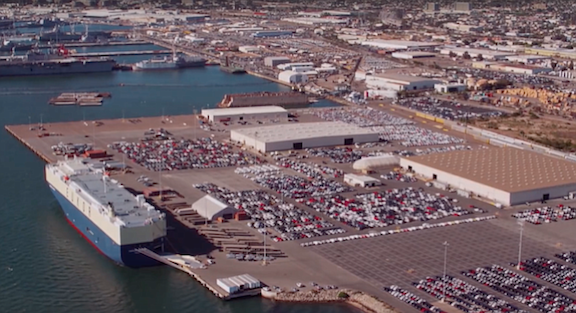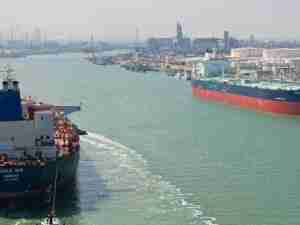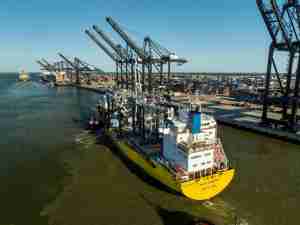Shutting down ports of entry at the U.S.-Mexico border near San Diego could cost local industry billions as the Trump administrations grapples with how to control an influx of immigrants, say business officials in the region.

Even temporary closures are creating traffic snarls and delays, clogging the border as vehicles lined up for hours to cross into the U.S. and already slowing economic activity, said Paola Avila, a vice president at the San Diego Chamber of Commerce. The threat of violence prompted owners of a shopping center near the San Ysidro Port of Entry to evacuate the mall and shutter stores Sunday in the middle of the holiday shopping weekend.
Extended border closings and delays could mount to billions of dollars in economic losses over the coming months, Avila said.
“The uncertainty of border closures occurring at any time is a substantial economic threat for our region,” she said. “Our economies are inextricably linked. We produce together, we work together, we have families together, we have an integrated supply chain worth $2.5 billion.”
Border Rush
U.S. border officials temporarily closed and reopened the San Ysidro port of entry between Tijuana and San Diego on Sunday, one of the busiest border crossings in the world. Border officials fired tear gas to repel a group of Central American migrants rushing toward the U.S. border. Images of the confrontation were broadcast around the country, prompting fears of a growing economic impact even if actual port closings remain few and far between.
“Shutting down a border just completely stops economic opportunity,” said Cindy Ramos-Davidson, president of the El Paso Chamber of Commerce in Texas. Even an hour can be devastating as commerce between the countries grinds to a halt, she said. “Think about all those things that would come to a stop, what would happen. It would be absolutely devastating not only to our community but I think to the country as a whole.”
Among the industries affected are electronics, aerospace and motor vehicle parts, medical device manufacturing and pharmaceutical medicines, e-commerce and tourism, Avila said.
Crossing Delays
Border wait times at the Otay Mesa port of entry in California, a major hub for commerce, increased from a 30-minute maximum to as much as five hours on Sunday as traffic sought to avoid San Ysidro. Five of the 26 lanes at San Ysidro were still shut on Monday, she said.
“There were cars that were stuck there for six hours at San Ysidro, not moving, and this was on one of the biggest weekends of travel in our nation,” said Avila. Businesses ”will feel a big loss from that.”
The Las Americas Premium Outlets, located virtually next door to the San Ysidro port of entry, reopened Monday after the border fracas raised safety concerns for shoppers and employees, according to a statement the mall posted on Facebook.
Mexico deported almost 100 migrants back to their country of origin after they “violently” attempted to cross into the U.S. on Sunday, according to the government’s national migration institute, or INM. An estimated 8,200 migrants from the so-called caravans heading to the U.S. from Central America are now in Mexico. No clashes have been reported along the border in Texas.
The situation could worsen if the number of migrants waiting at the border increases amid delays in processing asylum claims, said Avila. “The uncertainty hurts the economy because it prevents business travel and tourism on both sides of the border,” she said.
“It’s not only Mexico that will be impacted, it’s the U.S. as we head into the holiday season and shopping. This situation is going to last for several weeks, if not months.”








